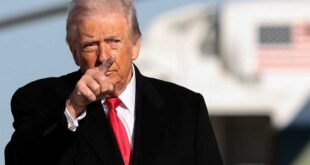Dr. Arshad Khan
When Iran and Saudi Arabia resumed diplomatic relations in March after seven years, the power broker was, not the US, but China. Waning US influence seems to have woken up our president who has been sleep-walking through his term of office. That and the prospect of a tough fight in the election next year.
The agreement was the result of intensive talks in China and the communique was issued jointly by Iran, Saudi Arabia and the host, China. A bit woozy, as if woken from a deep sleep, the US president has been scrambling wildly to assert his country’s influence.
A new grand plan for Mideast peace has been launched although it is difficult to quite remember how many there have been in the past half-century. In return for its acceptance of Israel, Saudi Arabia would have a mutual security pact with the US but it would be required to dial down the scale of its China relationship. It would also provide a generous aid package to Palestinians in the West Bank.
For its part, Israel would have to commit again to a two-state solution, and consequently cease expanding Jewish settlements in Palestinian areas. In turn, the Palestinian Authority would have to support the Israel-Saudi Arabia peace agreement. All of which is a tall order for Israel, bearing in mind that the religious parties like Shas and United Torah Judaism are part of Netanyahu’s fragile coalition government. That these settlers often attack Palestinians at will, without consequences, only emboldens them despite the doubtful legality in international law of their settlements.
All of which reduces the likely success of a grand Mideast peace plan to a near zero status. No doubt a bemused China is looking on at the well-intentioned Joe Biden, who somehow fails to follow through.
Of course, the Saudi-Iran deal is an extra complication, and from the American point of view lends further urgency to the situation. U.S. credibility in the region particularly with the Palestinians has suffered because of its tendency to blow hot or cold depending on Washington politics and the party in power. While its support of Israel seldom waivers, it takes two to tango as the saying goes and in this case it will be a four-sided negotiation — Israel, Saudi Arabia, the Palestinians and the US. The veteran Palestinian leader Mahmoud Abbas has become ancient, waiting for a settlement — he is now 87 and has been president since 2005.
Hamas is a rival party to Abbas’ Fatah and is considered more militant. The last flare-up between Hamas and Israel was in May 2021, when some 200 people were killed. It has governed Gaza since 2007 while the Fatah rule the West Bank with Ramallah as the administrative capital. It is about 10 km (6 miles) north of Jerusalem.
Relations between Hamas and Saudi Arabia were severed in 2007. There are signs of improvement this year as the Hamas leadership including Ismail Haniyeh the Chairman of the Political Bureau visited Saudi Arabia in April.
Into this hornet’s nest of politics strides the U.S. president with a grand plan. Is there any chance of success? He must believe so although most observers do not agree with him. But stranger things have happened.
 Geostrategic Media Political Commentary, Analysis, Security, Defense
Geostrategic Media Political Commentary, Analysis, Security, Defense





